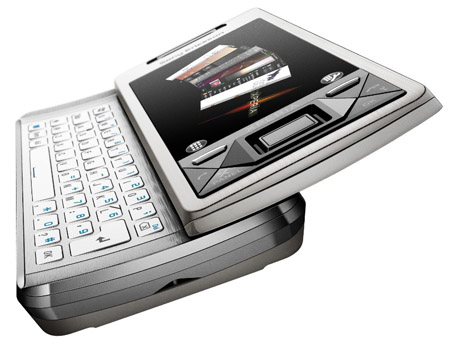…and how many can he realistically carry?
For years I worked as a laptop-only worker. Office, home, train, hotel – the trusty laptop did the job with a variety of accessories such as data cards, USB sticks (which I invariably lose within 2 weeks) and external drives. It worked – I always had the files I needed and didn’t have to worry about synching favourites, address books and source code.
Over time, the forces of progress conspired to break this policy. As my computing needs grew (working with ever larger databases, processing high-resolution photographs and manipulating complex project plans) I was drawn to bigger, faster laptops. At the same time I was spending less time in the car and more time in airports and railway stations, drawing me to the lightweight and low power ultra-portable notebooks. So, I succumbed to a meaty desktop with 24″ monitor and a Sony Vaio so small I sometimes look in my bag and think I’ve forgotten it.
The laptop is fantastic. Sure, an 11 inch screen is useless for photo editing and the 100Gb drive and slow processor stuffs up serious database work, but it’s a great tool for mobile work. Such is the portability that it’s always with me and no hassle at all to pull out for a quick email check or MSN session. That is when the big Achilles heel becomes apparent.
Vista. Or, more precisely, Windows. In the 9 months or so I’ve had it the boot-up time has stretched from a fairly poor couple of minutes to nearer 10 to get a useable system. This utterly defeats the object of a super-portable device.
I get around this by having a smartphone. My Nokia synchs faultlessly with Exchange so I can quickly check emails and put together brief replies. It’s good, but I can’t reliably read HTML content, web links are a pain to access on a tiny screen and data costs are piling up (to which T-Mobile may now have the answer with their fixed data plan).
So as well as the desktop PC I now have
- Sony TZ-11
- Nokia E61
- iPod Touch (for music and video)
Despite carrying 3 devices all the time, I still can’t read emails, view websites or run MSN without either waiting for Vista to boot up (and connect to my phone or BT Openzone should it be available) or go cross-eyed squinting at half-formed pages on the Nokia.
So, please, can someone design a device which
- is the size of a chunky smartphone
- has a VGA or half-VGA screen (QVGA is just too small)
- boots in 20 seconds and suspends / wakes near instantly
- seamlessly chooses between wireless LAN, bluetooth modem and inbuilt 3G as available
- is capable of running an RDP / ICA client
- accepts external storage devices – USB memory sticks via a separate adaptor cable would be fine
- can be charged via a standard mini-USB lead
- has a QWERTY keyboard
I can then leave the laptop in the bag more often whilst travelling and still have a single device to replace my Nokia and the iPod.
Someday soon…

